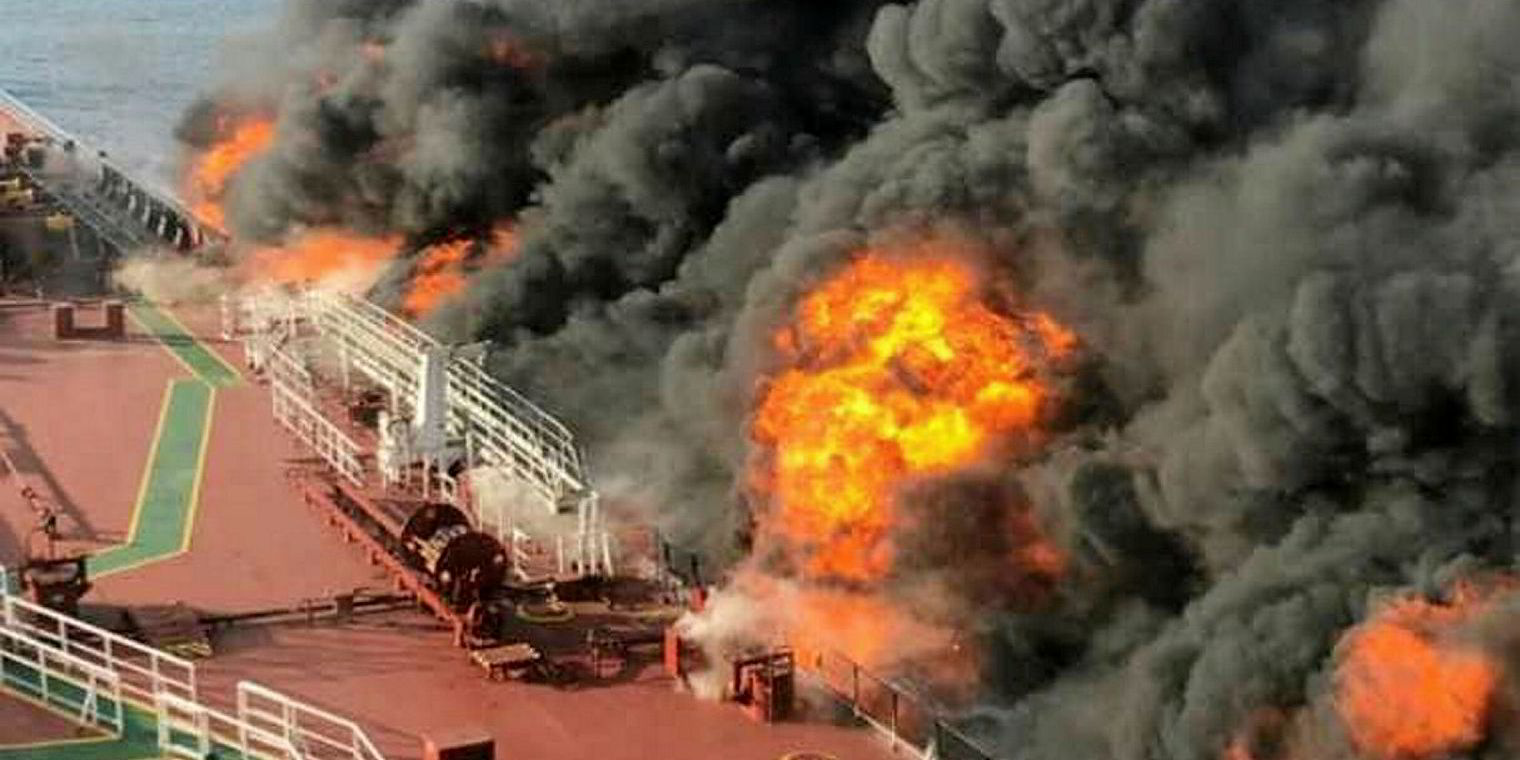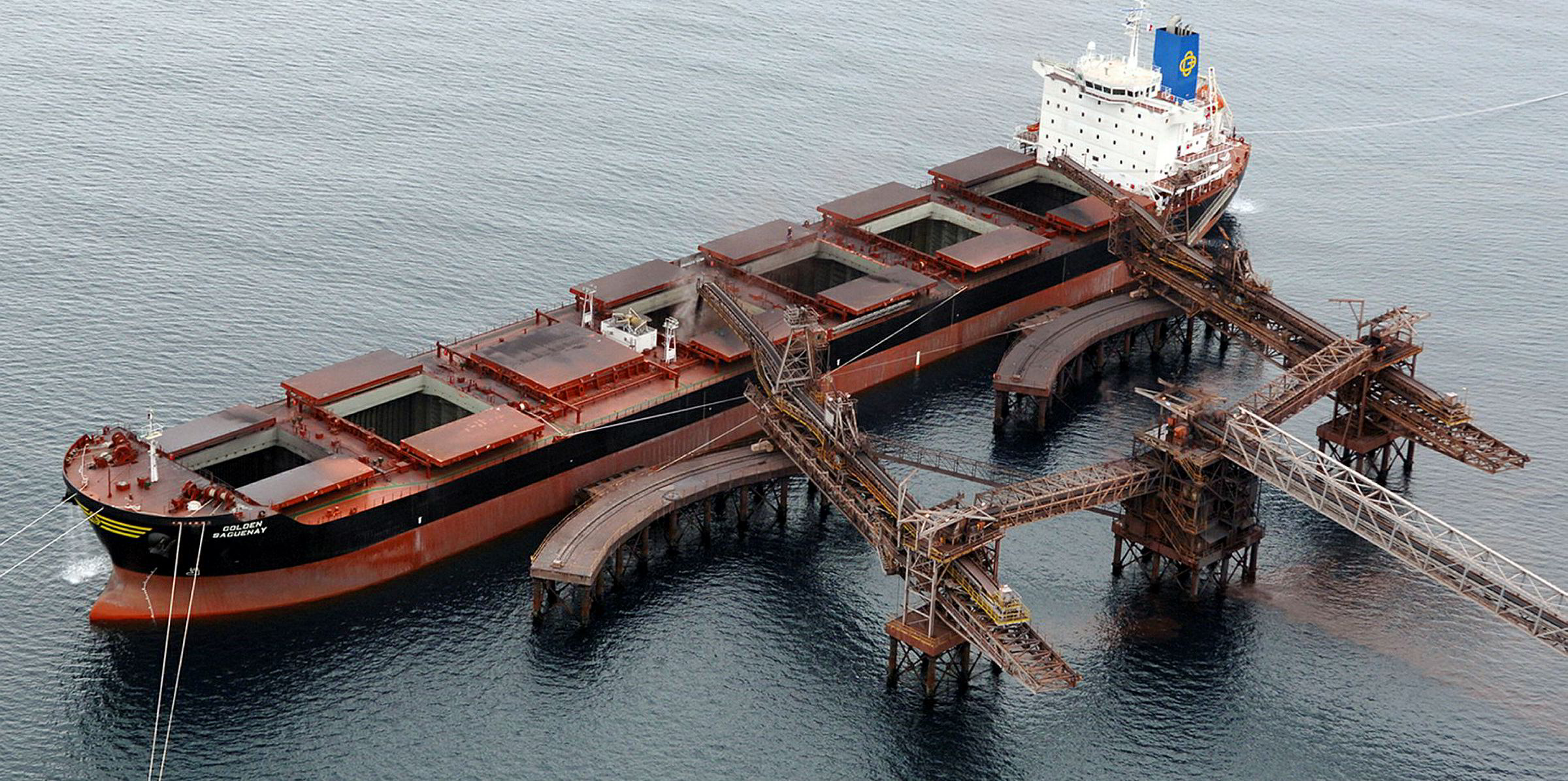Shipping stocks would have been higher today without the tariff brawl between the world’s two largest economies, analysts say.
The US-China trade war began in January last year, when the Trump administration imposed tariffs on washing machines and solar panels from China and other nations. Since then, 26 of the 34 New York-listed maritime equities have fallen in value — some significantly.
“While there is still some investor concerns about management and corporate governance, in addition to the small size of the dry bulk shipping sector, I would argue that dry bulk shipping stocks would be trading closer to the mid-2018 levels without a trade war,” Noble Capital Markets analyst Poe Fratt told TradeWinds.
He offered New York bulker owner Genco Shipping & Trading as a prime example, pointing out that its shares were selling at $19.77 on 8 June 2018 but traded at $8.77 on 22 August this year.
“Trade tension has created an overhang on the shipping market and shipping stocks are not reflecting the significant improvement in the Baltic Dry Index and other underlying indices, especially the BCI [Baltic Capesize Index], because there is fear that the implementation of tariffs will have a negative impact on economic activity,” Fratt said.

A dozen other bulker stocks have crumbled since mid-2018, most notably Seanergy, an owner of eight capesizes whose shares fell 96% from 2 July 2018 to $0.61 on 22 August.
Other equities with capesize exposure have taken mighty tumbles, such as Golden Ocean Group — an owner of 38 capesizes whose stock dropped 42% since last September to $4.05.
Vale’s dam disaster in January certainly stung dry bulk shipping equities, but Fratt said the US-China tussle has weighed heavily since last year’s third quarter.
The trade war began on 22 January 2018 when US President Donald Trump imposed tariffs on washing machines and solar panels from China.
Trump then imposed a 25% tariff on steel imports and 10% on aluminium on 8 March 2018, to which Beijing responded with a 25% tax on 128 US imports.
Both countries traded jabs over ensuing months, eventually leading to a 10% US tax on $300bn of Chinese imports by 1 September on top of a 25% tariff on $250bn of other goods. Washington has postponed the 10% impost on some Chinese products until 15 December for the holiday retail season.
China has placed tariffs on $185bn-worth of US imports over the past 18 months.
“Shipping stocks have been negatively impacted by trade tension over the past year, or since September/October 2018,” Fratt said.
“Up to that point, the trade numbers and economic outlook were holding up, probably because some shippers were trying to shop ahead of the tariffs. Beginning in the late third and fourth quarters of 2018, however, the economic data started to slow and the shipping stocks started to weaken.”
Stifel analyst Ben Nolan attributed the drag on shipping shares entirely to negative sentiment surrounding the unpredictable, open-ended trade war. “As it relates to the stocks, I think the impact is as much psychological as anything else, as there are concerns over future demand and less focus on current cash flows,” he said.
Jefferies analyst Randy Giveans believes the battle has kept shipping stocks down, but for a different reason — demand.
“When you hear ‘trade war’, you think, ‘Who facilitates global trade?’” he said. The answer: shipping firms. “Any slowdown in demand for imports or exports will reduce tonne-mile demand for commodity shipping companies.”
Meanwhile, dry bulk rates have risen amid the return of Vale’s Brucutu mine in June — and its 30m tonnes of annual iron ore output — and supply tightening as a result of scrubber retrofits.
“The ‘micro’ for dry bulk continues to improve because iron ore shipments out of Brazil are trending higher and the prep for IMO 2020 is reducing available supply as dry vessels, largely capes, are entering shipyards for scrubber installations, which are taking longer,” Giveans said.

“On top of the near-term supply issue, the orderbook is close to the lowest in a decade.”
Capesize rates fell to $3,460 per day on 2 April from $13,382 per day after Vale’s Feijao mine in Brumadinho collapsed on 25 January, forcing the closure of 50 tailing dams.
They made their way back up to $32,963 per day on 22 July before cooling off to $29,490 per day on 22 August.
The Baltic Exchange Dry Index, meanwhile, fell from 1,190 points as the trade fight began to 674 on 2 April before peaking at 2,191 on 22 July, then falling to 1,712 on 7 August. It had swung back to 2,118 by 22 August.
While impossible to quantify the trade war’s impact on shares, it is “safe to say” that the uncertainty it fosters has led to a general decline, according to Seaport Global Securities analyst Kevin Sterling. “The trade war has also most likely prevented any rally as well,” he said.
China holds the key
The spat has also dragged down containership stocks by muddying the waters for future fleet growth, Fratt said.
“The boxship stocks are similar to dry bulk and are tied to the flow of semi-finished and finished goods that move from China and other Asian countries to the US and Europe,” he said.
Shares of Danaos Corp, which owns 55 containerships, have fallen by 62% since the trade war began, to $7.38 on 22 August, while Navios Maritime has more than halved to $6.15.
The slump has affected tanker equities to a lesser degree because demand is more tied to additional oil supply out of the US and Opec’s response to that factor, Fratt explained.

It is hard to say how the trade war has affected all equities worldwide, but an escalation could hurt all investors one day, he said.
“If the trade war continues, the shipping stocks are likely to languish, since higher barriers to trades are likely to slow down global trade,” Fratt said.
“The key is China. If China slows down and causes a recession, the broader market would be impacted too.
“If the trade war continues, I have to believe that it will weigh on stocks and the market in general, as it will create demand uncertainty.”







